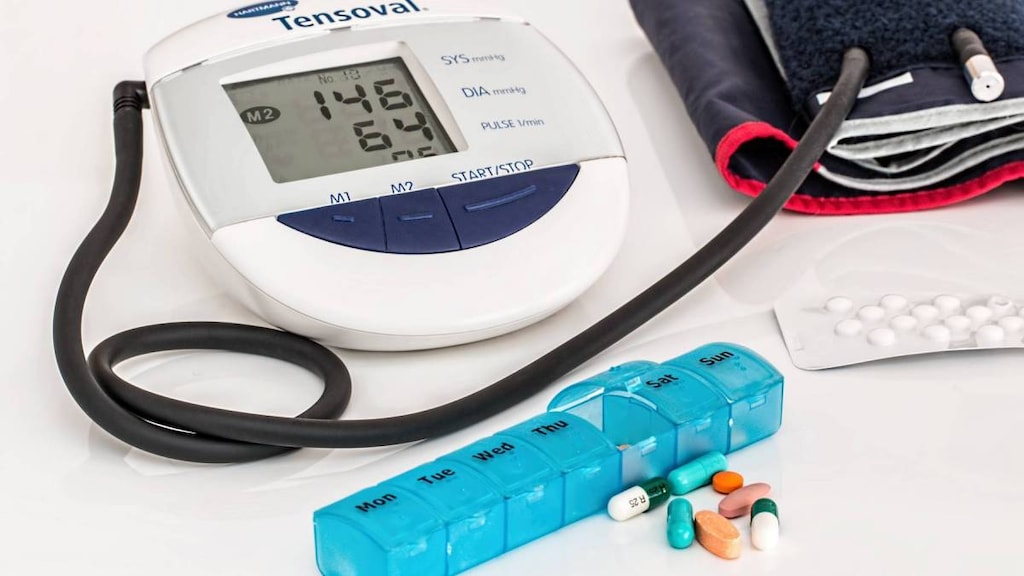What is Vecamyl used for?
- Vecamyl is used to treat high blood pressure.
Before taking Vecamyl, tell your doctor:
- If you are allergic to Vecamyl; any part of this medicine; or any other drugs, foods, or substances. Tell your doctor about the allergy and what signs you had.
- If you have any of these health problems: A type of stomach or bowel problem called pyloric stenosis, glaucoma, heart blood vessel problems, or kidney problems.
- If your high blood pressure is under control or is not very high.
- If you have had a recent heart attack.
- If you are taking antibiotics, talk with doctor.
- If you are taking a sulfa (sulfonamide) drug. Ask your doctor if you are not sure if any of your drugs are a sulfa drug.
- If you are breast-feeding or plan to breast-feed.
This is not a list of all drugs or health problems that interact with this medicine.
Tell the doctor and pharmacist about all of your child's drugs (prescription or OTC, natural products, vitamins) and health problems. You must check to make sure that it is safe for your child to take Vecamyl with all of his/her drugs and health problems. Do not start, stop, or change the dose of any drug your child takes without checking with the doctor.
What are some things I need to know or do while I take Vecamyl?
- Tell all of your health care providers that you take Vecamyl. This includes your doctors, nurses, pharmacists, and dentists.
- Avoid driving and doing other tasks or actions that call for you to be alert until you see how Vecamyl affects you.
- To lower the chance of feeling dizzy or passing out, rise slowly if you have been sitting or lying down. Be careful going up and down stairs.
- Talk with your doctor before you drink alcohol.
- Certain health problems and conditions may raise the chance of Vecamyl's side effects. Tell your doctor if you have a fever; infection; heavy bleeding; or very bad diarrhea, throwing up, or sweating. Tell your doctor if you drink alcohol, are exposed to heat, or are on a low-salt diet. Tell your doctor if you are pregnant, have anesthesia or surgery, or do heavy exercise.
- Check your blood pressure as you have been told.
- Tell your doctor if you are pregnant or plan on getting pregnant. You will need to talk about the benefits and risks of using Vecamyl while you are pregnant.
How is Vecamyl best taken?
Use Vecamyl as ordered by your doctor. Read all information given to you. Follow all instructions closely.
- Take after meals.
- Keep taking Vecamyl as you have been told by your doctor or other health care provider, even if you feel well.
- Do not stop taking Vecamyl all of a sudden without calling your doctor. High blood pressure may happen again. Sometimes, this may cause deadly strokes or heart failure. If you need to stop Vecamyl, you will slowly stop it as ordered by your doctor.
What do I do if I miss a dose?
- Take a missed dose as soon as you think about it.
- If it is close to the time for your next dose, skip the missed dose and go back to your normal time.
- Do not take 2 doses at the same time or extra doses.
What are the side effects of Vecamyl that I need to call my doctor about immediately?
WARNING/CAUTION: Even though it may be rare, some people may have very bad and sometimes deadly side effects when taking a drug. Tell your child's doctor or get medical help right away if your child has any of the following signs or symptoms that may be related to a very bad side effect:
- Signs of an allergic reaction, like rash; hives; itching; red, swollen, blistered, or peeling skin with or without fever; wheezing; tightness in the chest or throat; trouble breathing, swallowing, or talking; unusual hoarseness; or swelling of the mouth, face, lips, tongue, or throat.
- Blurred eyesight.
- Lowered interest in sex.
- Not able to get or keep an erection.
- Very bad dizziness or passing out.
- Mood changes.
- Mouth or tongue irritation.
- Diarrhea that happens often.
- Swelling of belly.
- Very bad constipation.
- Very bad belly pain.
- Shortness of breath.
- Trouble passing urine.
- Stiff muscles, shakiness, or muscle movements that are not normal.
- Seizures.
- A burning, numbness, or tingling feeling that is not normal.
What are some other side effects of Vecamyl?
All drugs may cause side effects. However, many people have no side effects or only have minor side effects. Call your doctor or get medical help if any of these side effects or any other side effects bother you or do not go away:
- Constipation.
- Dizziness.
- Feeling sleepy.
- Dry mouth.
- Not hungry.
- Upset stomach or throwing up.
- Feeling tired or weak.
These are not all of the side effects that may occur. If you have questions about side effects, call your doctor. Call your doctor for medical advice about side effects.
You may report side effects to the FDA at 1-800-332-1088. You may also report side effects at https://www.fda.gov/medwatch.
If overdose is suspected:
If you think there has been an overdose, call your poison control center or get medical care right away. Be ready to tell or show what was taken, how much, and when it happened.
How do I store and/or throw out Vecamyl?
- Store at room temperature.
- Store in a dry place. Do not store in a bathroom.
- Keep all drugs in a safe place. Keep all drugs out of the reach of children and pets.
- Throw away unused or expired drugs. Do not flush down a toilet or pour down a drain unless you are told to do so. Check with your pharmacist if you have questions about the best way to throw out drugs. There may be drug take-back programs in your area.
Consumer information use and disclaimer
- If your symptoms or health problems do not get better or if they become worse, call your doctor.
- Do not share your drugs with others and do not take anyone else's drugs.
- Some drugs may have another patient information leaflet. Check with your pharmacist. If you have any questions about Vecamyl, please talk with your doctor, nurse, pharmacist, or other health care provider.
- If you think there has been an overdose, call your poison control center or get medical care right away. Be ready to tell or show what was taken, how much, and when it happened.
- This information should not be used to decide whether or not to take Vecamyl or any other medicine. Only the healthcare provider has the knowledge and training to decide which medicines are right for a specific patient. This information does not endorse any medicine as safe, effective, or approved for treating any patient or health condition. This is only a brief summary of general information about this medicine. It does NOT include all information about the possible uses, directions, warnings, precautions, interactions, adverse effects, or risks that may apply to Vecamyl. This information is not specific medical advice and does not replace information you receive from the healthcare provider. You must talk with the healthcare provider for complete information about the risks and benefits of using this medicine.




